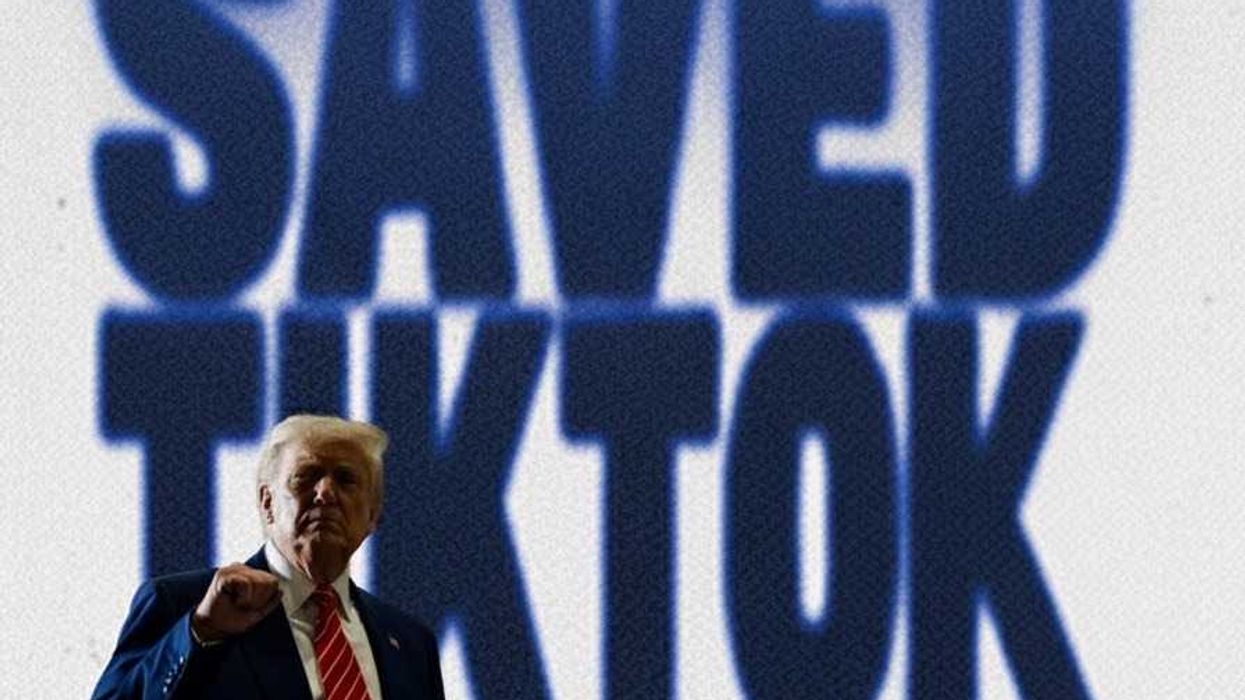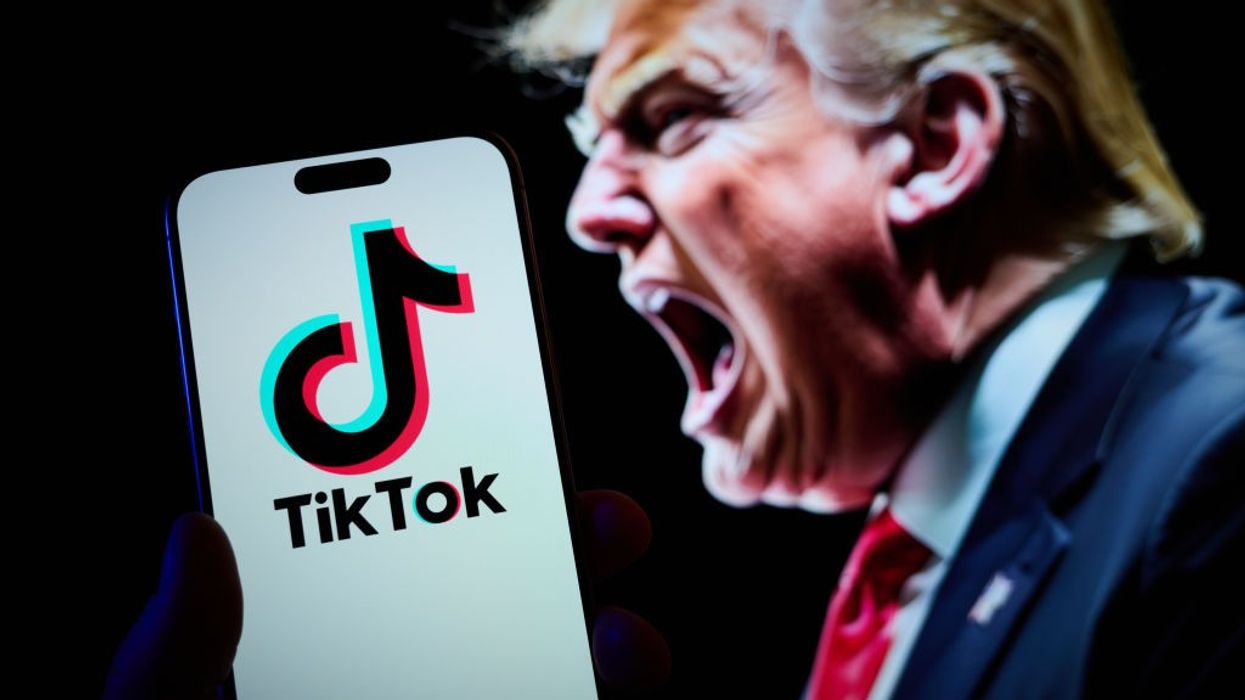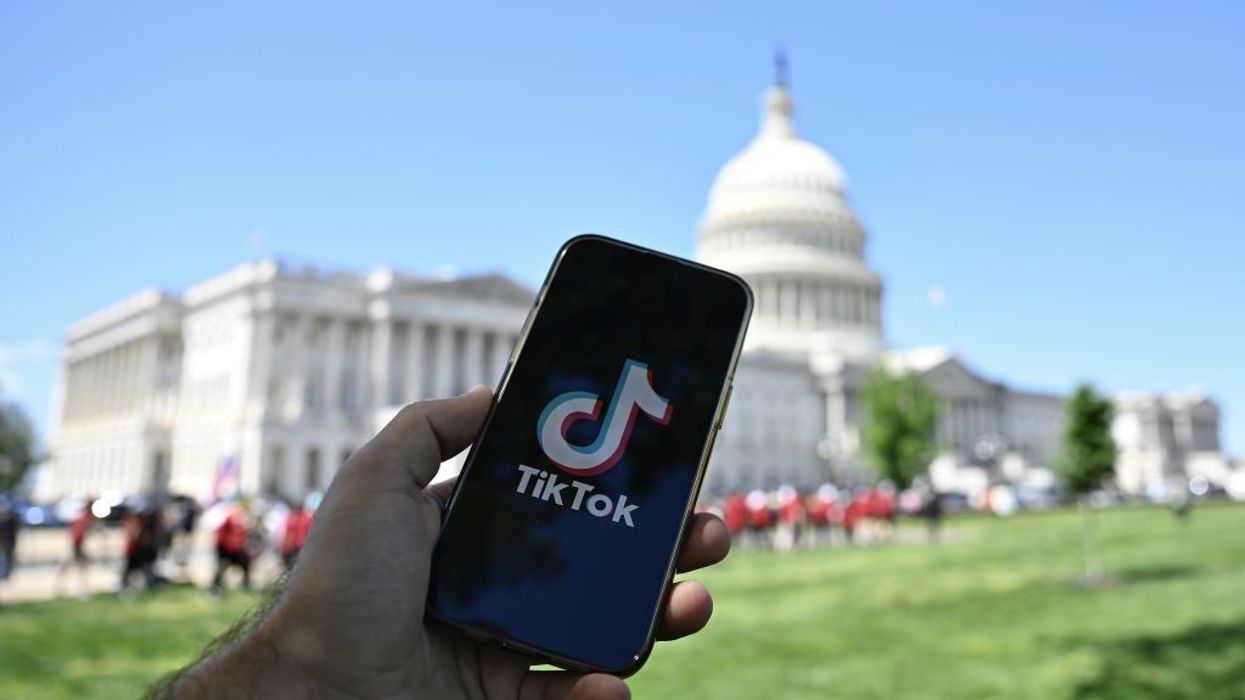As Trump Signs TikTok Order, Critics Sound Alarm Over Corruption and US Propaganda
One watchdog leader noted that the president's deal involves "one of his major crypto business partners that generates tens of millions of dollars a year for the Trump family."
President Donald Trump on Thursday issued an executive order claiming to "save" TikTok from a federal law that would ban the video-sharing platform in the United States, but critics are condemning the Republican's deal as yet another case of him "picking winners and losers in government policy based on who is enriching his family."
Trump initially kicked off efforts to force TikTok's Chinese parent company ByteDance to divest with an August 2020 executive order, but Democratic former President Joe Biden signed the bipartisan legislation that would ban the platform based on national security concerns last year.
Since returning to office, Trump has pledged to "save" TikTok, delaying enforcement of the law and negotiating a deal under which, according to a White House fact sheet, the US application "will be majority-owned by US investors, operated in the US by a board of directors with national security and cybersecurity credentials, and subject to strict rules to protect Americans' data and our national security."
The fact sheet also confirms that "ByteDance will hold less than 20% of the stock as required by law," and "Oracle—one of the nation's leading technology companies—will act as TikTok’s security provider and independently monitor and assure the safety of all operations in the US."
Critics have expressed alarm about both the anticipated quality of the US platform and the reported investors.
OpenSecrets noted Thursday that Oracle co-founder Larry Ellison is "a Trump supporter and major bankroller of Republican candidates and causes," and the company "has spent at least $11 million on federal-level government lobbying during each of the past four full years," a trend that is set to continue this year.
Citing unnamed sources, CNBC reported Thursday that, in addition to Oracle, the main investors will be Silver Lake and Abu Dhabi's MGX. Previous reporting has also suggested involvement from venture capitalists Marc Andreessen and Ben Horowitz.
Trump on the TikTok deal: "Rupert Murdoch is involved."
[image or embed]
— Aaron Rupar (@atrupar.com) September 25, 2025 at 4:35 PM
While some opponents of the Trump plan have highlighted his ties to Ellison, Andreessen, and Horowitz, Tony Carrk, executive director of the watchdog group Accountable.US, focused on his relationship with MGX in a Thursday statement.
"President Trump's use of his office to enrich himself and his friends seems to know no bounds," Carrk said. "His grand scheme to 'save' TikTok just so happens to involve the enrichment of one of his major crypto business partners that generates tens of millions of dollars a year for the Trump family."
"That's no coincidence for the only US president in history that has seen his bottom line grow by billions from the White House," he asserted. "Meanwhile, working Americans see their costs continue to increase, from groceries to healthcare to housing. It's clear the president's priority is himself, not the rest of us."
Trump's Thursday order affirms that the deal complies with last year's law and allows another 120 days to finalize the details.
The Associated Press reported that "Trump said Thursday that Chinese leader Xi Jinping has agreed to move forward with it. However, the Chinese embassy in Washington didn't immediately respond to an AP inquiry seeking confirmation that China has formally signed off on the proposed framework deal."
US political leaders have long claimed that under ByteDance's control, users may encounter content favored by the Chinese government. The Electronic Frontier Foundation said earlier this week that "if the concern had been that TikTok could be a conduit for Chinese government propaganda—a concern the Supreme Court declined to even consider—people can now be concerned that TikTok could be a conduit for US government propaganda."
Joining Trump in the Oval Office for the executive order signing on Thursday, Vice President JD Vance seemed to confirm that's the plan, telling reporters that "the US company will have control over how the algorithm pushes content to users, and that was a very important part of it."
Responding to Vance's remarks, one social media user quipped, "Ahh, so it was just an issue of *whose* propaganda."


